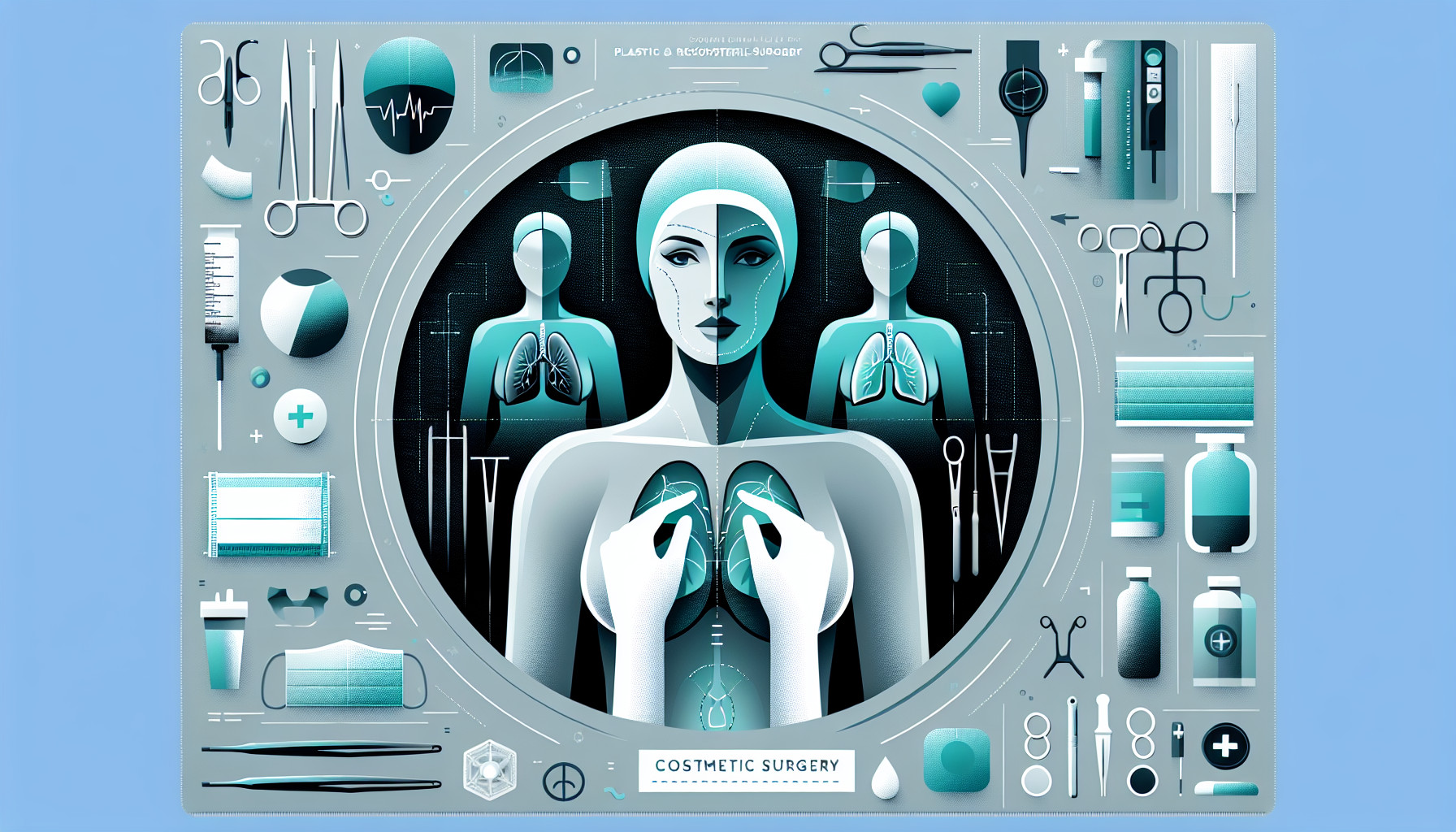Our Summary
This research paper discusses how our diet and nutrition can affect the results of cosmetic and aesthetic medical procedures, like reconstructive surgeries or even minor cosmetic treatments. The paper points out that while these procedures have become very popular worldwide, they can potentially lead to complications. These can range from mild issues like bruising or swelling, to more serious problems that take longer to resolve.
The key goal of this review is to identify how our dietary habits - whether we’re not getting enough of certain nutrients, or perhaps too much - can be linked to common complications from these procedures. These complications can include things like granulomas (small areas of inflammation), hypertrophic scars and keloids (both types of thick, raised scars), seromas (pockets of clear fluid that can develop after surgery), infections, skin dryness, dark spots, a certain type of skin discoloration called livedo reticularis, slower wound healing, and other poor outcomes.
The authors suggest that our nutrition can have a big impact on how well our bodies heal after surgical procedures and how successful cosmetic treatments can be. They advise professionals in the field to take their patients’ nutritional status into account in order to get the best results from these procedures.
FAQs
- How does a patient’s nutritional status impact the outcomes of aesthetic and cosmetic medical practices?
- What are the major complications of reconstructive surgery, aesthetic surgery, and mini-invasive aesthetic procedures associated with nutritional deficits or excesses?
- What actions can professionals in the aesthetic and cosmetic medical industry take to reduce the risks of procedures and improve clinical outcomes?
Doctor’s Tip
A helpful tip a doctor might tell a patient about cosmetic surgery is to maintain a healthy and balanced diet before and after the procedure. Nutritional deficits or excesses can impact the healing process and overall outcome of the surgery. It is important to ensure that you are getting adequate nutrients such as vitamins, minerals, and proteins to support tissue repair and wound healing. Consulting with a nutritionist or healthcare provider to optimize your nutritional status can help reduce the risks of complications and improve the results of the cosmetic procedure.
Suitable For
Patients who are typically recommended cosmetic surgery include those who are in good overall health, have realistic expectations, and are seeking to improve their appearance. Common reasons for seeking cosmetic surgery include wanting to correct physical imperfections, enhance physical features, boost self-confidence, or address signs of aging. Patients may also undergo cosmetic surgery to correct congenital defects, injuries, or medical conditions that affect their appearance. It is important for patients to consult with a qualified and experienced plastic surgeon to determine if they are suitable candidates for cosmetic surgery and to discuss the potential risks and benefits of the procedure.
Timeline
Before cosmetic surgery:
- Patient researches and chooses a reputable surgeon
- Initial consultation with surgeon to discuss goals and expectations
- Pre-operative appointments for medical evaluations and pre-surgical instructions
- Patient prepares for surgery by arranging for necessary time off work, childcare, etc.
After cosmetic surgery:
- Immediate post-operative care in recovery room
- Follow-up appointments with surgeon for check-ups and removal of sutures
- Patient follows post-operative instructions for wound care, medication, and activity restrictions
- Swelling and bruising gradually decrease over the following weeks
- Final results become more apparent as swelling fully resolves
- Patient enjoys improved appearance and boosted self-confidence
What to Ask Your Doctor
What are the potential risks and complications associated with the specific cosmetic surgery procedure I am considering?
How can my current nutritional status impact the outcome of the surgery and my recovery process?
Are there any dietary changes or supplements I should consider before and after the surgery to optimize my healing process?
How can I ensure that I have a balanced and adequate diet to support my body during the recovery period?
Are there any specific vitamins or nutrients that are particularly important for wound healing and tissue repair after cosmetic surgery?
How soon after the surgery can I resume my normal diet and exercise routine?
Are there any foods or drinks I should avoid before or after the surgery to minimize the risk of complications?
Can you recommend any specific post-operative nutrition guidelines or resources to help me recover more smoothly?
Are there any signs or symptoms of nutritional deficiencies that I should watch out for during my recovery?
How can I maintain a healthy nutritional status in the long term to support the results of the cosmetic surgery and my overall well-being?
Reference
Authors: Vitagliano T, Garieri P, Lascala L, Ferro Y, Doldo P, Pujia R, Pujia A, Montalcini T, Greco M, Mazza E. Journal: Nutrients. 2023 Jan 10;15(2):352. doi: 10.3390/nu15020352. PMID: 36678221
